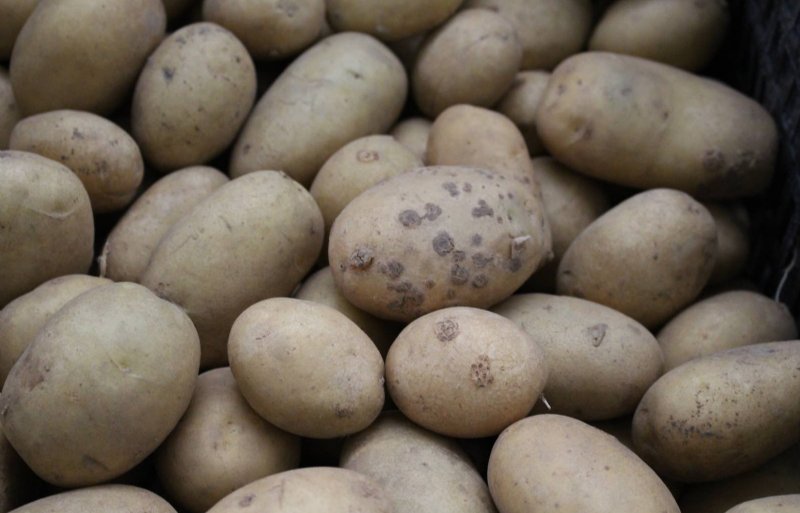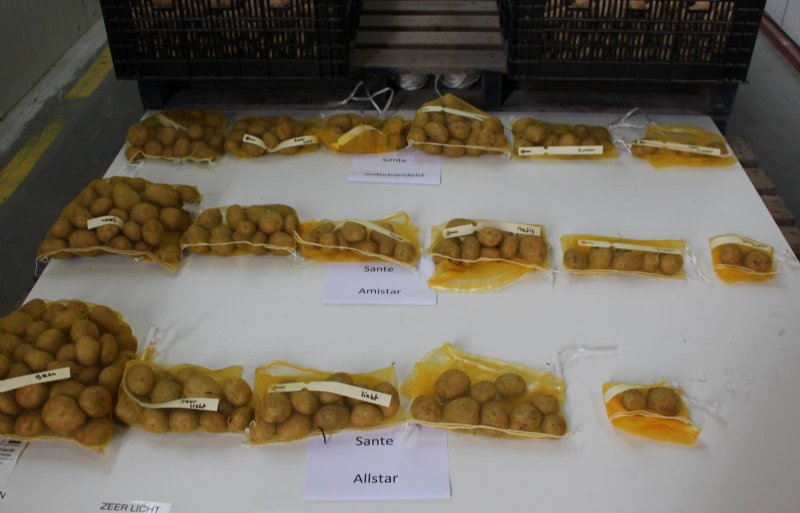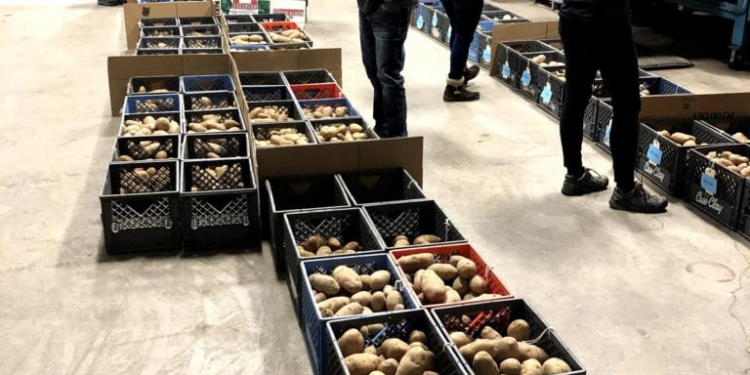Demo trials by BASF show that, thanks to more efficient control of rhizoctonia, seed potato growers can often harvest earlier and also get more available product from the land.
In a multi-year demo trial at a practical farm in Rutten, Flevoland, BASF compares its own agent Allstar with Amistar and objects without treatment for the control of rhizoctonia in seed potatoes. The fungicides were applied directly to the plant during planting. The demo has always been performed on poor, rhizoctonia-sensitive soil in ten different potato varieties.

Technical specialist Bert Westhoff from BASF recently gave an explanation of the results of the demo test of the past two years at a meeting for cultivation specialists in Luttelgeest in Flevoland. He explained that Compared to untreated, Allstar has hardly any influence on the vitality of the mother tubers.
Mother tubers sufficiently rotten
‘In some varieties with stubborn mother tubers, this can be a decisive advantage to be able to harvest on time. Sometimes it saves ten to fourteen days, ‘says Westhoff. ‘Certainly when the pressure from rhizoctonia is high and the weather changeable, seed potato growers are not waiting for the harvest to be postponed because of mother tubers that are not rotten enough.’
Over the past two years and over the ten different varieties, BASF determined an average yield of 32.25 tonnes of seed potatoes in the available sizes for the Allstar objects. That is almost 3 tons more than the net proceeds of the objects treated with Amistar.
Sort faster
According to Westhoff, the additional yields can be explained, among other things, by the smooth and smoother emergence of the seed potatoes after treatment with Allstar. ‘In addition, after harvesting, we find little or no damage to rhizoctonia in the Allstar objects in almost all varieties. In addition to a better net yield, it also means that the seed potato growers can sort faster. ‘

Expressed in financial yield, BASF calculates the Allstar benefit at around 1,000 euros per hectare. ‘That is based on more kilos and less loss,’ Westhoff explains. ‘We have not even included the labor savings due to easier sorting in this calculation.’







